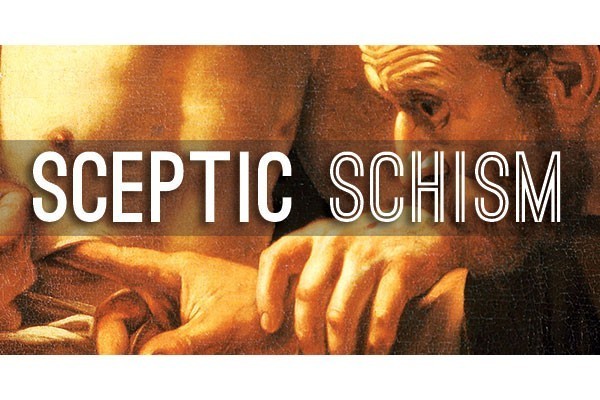If you tune into the History Channel, you get anything but history. Instead, outrageous pseudo-archaeological documentaries about aliens and Atlantis tend to take up the programming. One of the new darlings of the pseudo-archaeological scene is a man named Graham Hancock.
Hancock’s theory is that an ancient mother civilisation seeded all the world’s major civilisations 10,500 years ago. From the ancient Egyptians in Africa to the Incas in South America, Hancock argues that specific architectural and religious motifs are common to many distant cultures, and best explained by a single origin. Reputable archaeologists reject Hancock’s theory as fanciful nonsense. Maybe these scientists are being closed-minded.
Without getting bogged down in the specific evidence for Hancock’s claims, I’d like to ask a different question: how come when Hancock looks at the evidence, he sees Atlantis, but when scientists look at the very same evidence, they see a series of minor coincidences? Both are looking at the same evidence, but they are led to such different conclusions. Is Hancock just irrational? Are scientists just grumpy, dogmatic fogies?
Digging through Hancock’s YouTube clips, I discovered, that he is not only a fierce proponent of Atlantis but also of the use of psychedelic drugs. So am I! But Hancock believes that the use of psychedelics is necessary for a proper understanding of the world around us. He says that the great mysteries of humankind’s origin and purpose can be answered only through altering our private states of consciousness in order to receive ancient, mysterious wisdom teachings from trans-dimensional beings.
So it’s no wonder that when Hancock looks at the evidence, he is led to such radically different conclusions from the scientists. Hancock is using a totally different method to theirs. The scientific method depends on intersubjectively testable evidence, not on appeals to private, drug-induced visions. The idea is that if two scientists disagree, they can settle their dispute by appealing to evidence freely available to both parties, not by appealing to intuitions, revelation, gut feelings, transcendental visions, drug trips, unsubstantiated anecdotes or wishings-to-be-so.
Graham Hancock’s drug-induced visions are probably extremely compelling evidence if you’re Graham Hancock. Fortunately, I’m not.







